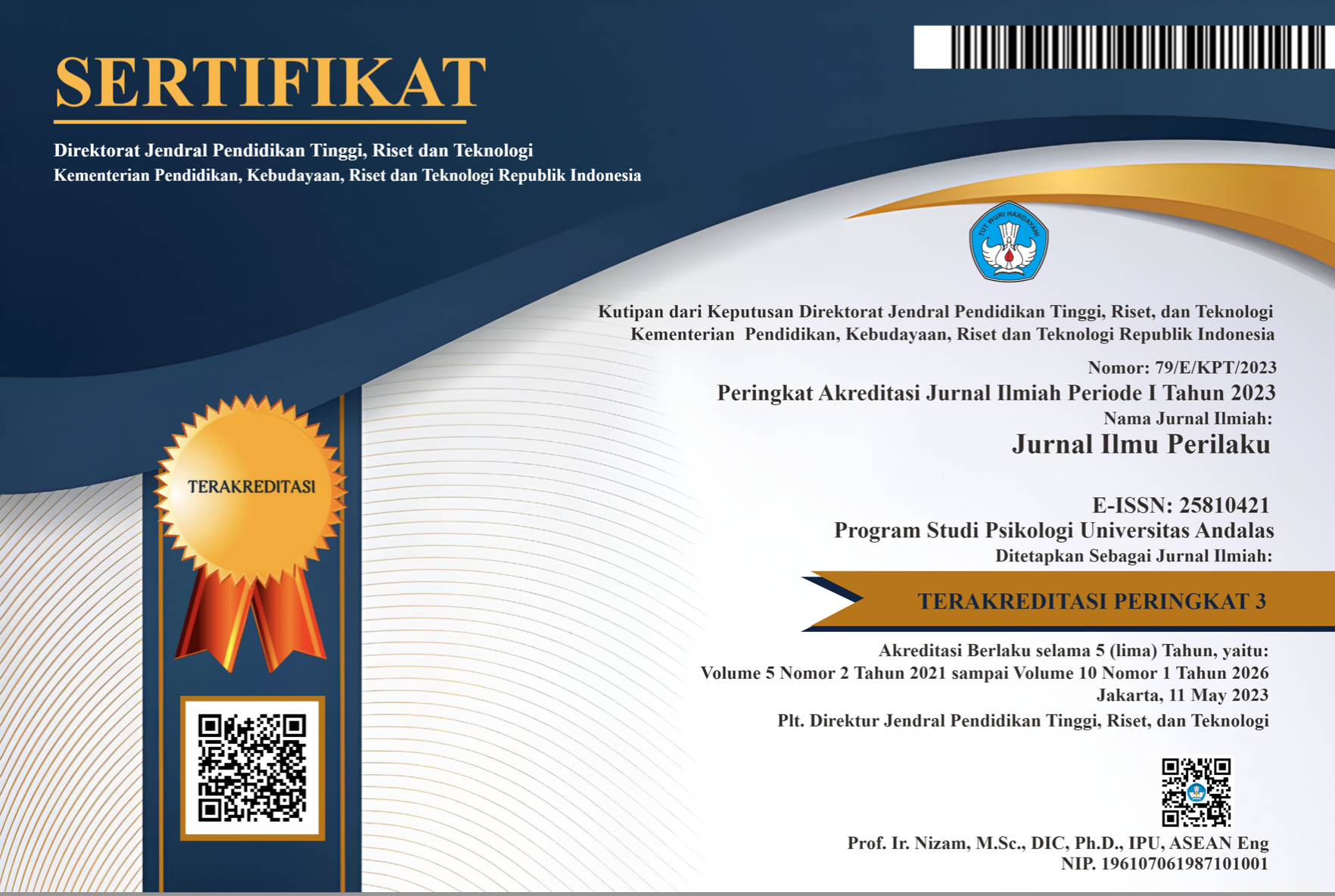Kepercayaan Diri Generasi Z Indonesia Memasuki Dunia Kerja: Gambaran Self-Perceived Employability
Abstract
Technological advances bring transformation in employment, such as the shift of work towards digitalization. The covid-19 pandemic has also encouraged increasing technology use at work. The impact of this phenomenon is reducing the need for human resources, which increases competition in the world of work. Generation Z is a generation that currently and will face this change where they are required to have more skills so they able to compete to get and maintain their jobs.. Self-perceived employability measures individual perceptions of their ability to get and keep jobs later. This study aims to get an overview of the level of self-perceived employability in Generation Z in Indonesia by involving 1157 college students in their third and fourth years. The data was collected from 23 provinces spread across western, central, and eastern Indonesia using the online platform. The results showed that most Generation Z in Indonesia have high (67%) and moderate levels of self-perceived employability (32%). In addition, it was also found that some factors can impact increasing students' views of their employability skills. The factors are being active in organizations on campus and off campus (freelance, entrepreneurship), English proficiency (active and passive), and the Career Center in Higher Education.
Keywords: World of Work, Generation Z, Indonesia, Perceived Employability
Downloads
The non-commercial use of the article is governed by the Creative Commons Attribution license as currently displayed on Creative Commons Attribution-NonCommercial-ShareAlike 4.0 International License.
JIP's spirit is to disseminate articles published are as free as possible. Under the Creative Commons license, JIP permits users to copy, distribute, display, and perform the work for non-commercial purposes only. Users will also need to attribute authors and JIP on distributing works in the journal.
Please find the rights and licenses in Jurnal Ilmu Perilaku (JIP).
- License
The non-commercial use of the article will be governed by the Creative Commons Attribution license as currently displayed on Creative Commons Attribution-NonCommercial-ShareAlike 4.0 International License.
- Author’s Warranties
The author warrants that the article is original, written by stated author(s), has not been published before, contains no unlawful statements, does not infringe the rights of others, is subject to copyright that is vested exclusively in the author and free of any third party rights, and that any necessary written permissions to quote from other sources have been obtained by the author(s).
- User Rights
JIP's spirit is to disseminate articles published are as free as possible. Under the Creative Commons license, JIP permits users to copy, distribute, display, and perform the work for non-commercial purposes only. Users will also need to attribute authors and JIP on distributing works in the journal.
- Rights of Authors
Authors retain the following rights:
- Copyright, and other proprietary rights relating to the article, such as patent rights,
- The right to use the substance of the article in future own works, including lectures and books,
- The right to reproduce the article for own purposes, provided the copies are not offered for sale,
- The right to self-archive the article.
- Co-Authorship
If the article was jointly prepared by other authors, the signatory of this form warrants that he/she has been authorized by all co-authors to sign this agreement on their behalf, and agrees to inform his/her co-authors of the terms of this agreement.
- Termination
This agreement can be terminated by the author or JIP upon two months’ notice where the other party has materially breached this agreement and failed to remedy such breach within a month of being given the terminating party’s notice requesting such breach to be remedied. No breach or violation of this agreement will cause this agreement or any license granted in it to terminate automatically or affect the definition of JIP.
- Royalties
This agreement entitles the author to no royalties or other fees. To such extent as legally permissible, the author waives his or her right to collect royalties relative to the article in respect of any use of the article by JIP or its sublicensee.
- Miscellaneous
JIP will publish the article (or have it published) in the journal if the article’s editorial process is successfully completed and JIP or its sublicensee has become obligated to have the article published. JIP may conform the article to a style of punctuation, spelling, capitalization, referencing and usage that it deems appropriate. The author acknowledges that the article may be published so that it will be publicly accessible and such access will be free of charge for the readers.










